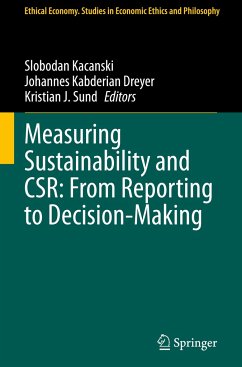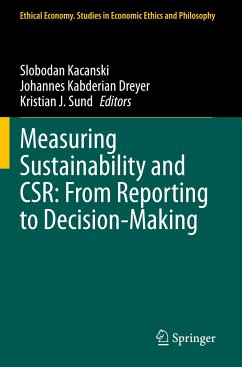
Philosophy and Business Ethics
Organizations, CSR and Moral Practice
Herausgegeben: Faldetta, Guglielmo; Mollona, Edoardo; Pellegrini, Massimiliano Matteo
Versandkostenfrei!
Versandfertig in 6-10 Tagen
121,99 €
inkl. MwSt.

PAYBACK Punkte
61 °P sammeln!
This book explores the relationship between philosophy and business ethics. Academics and practitioners often muse about the ethical and moral aspect of management and business actions, but these studies can lack a deeper philosophical grounding. Contributors to this volume challenge this gap by applying different philosophical paradigms and theories to business management issues. The territory covered by the contributions collected in this book spans from the foundations of business management literature itself, to the role of philosophy in new business models and technology; from the way phi...
This book explores the relationship between philosophy and business ethics. Academics and practitioners often muse about the ethical and moral aspect of management and business actions, but these studies can lack a deeper philosophical grounding. Contributors to this volume challenge this gap by applying different philosophical paradigms and theories to business management issues. The territory covered by the contributions collected in this book spans from the foundations of business management literature itself, to the role of philosophy in new business models and technology; from the way philosophical theory can explain - and encourage - ethical firm behaviour, to the political stance that an organization takes. Contributors take a holistic approach to business and management, bringing together real-world examples and rich academic theory, creating an interdisciplinary volume, with international authors.
Covering important topics such as corporate socialresponsibility, sustainability, leadership, and stakeholder relations, this book will be of interest to academics working in the field of business ethics, philosophy and management studies.
Covering important topics such as corporate socialresponsibility, sustainability, leadership, and stakeholder relations, this book will be of interest to academics working in the field of business ethics, philosophy and management studies.














